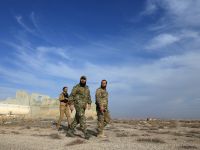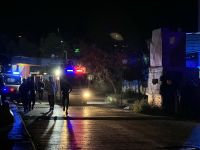What do human rights have to do with Dubai's Social Media Summit?
On March 17 and 18, 2015, the United Arab Emirates (UAE) hosted the first Arab Social Media Influencers Summit in Dubai, attracting social media personalities from across the world. Even though the summit may offer opportunities for entrepreneurs, however, it appears to be the latest in a slew of similar conferences aimed at covering up the region’s track record of censorship and problematic cyberlaws.
Fearing social media’s power as a potent organizing tool during the Arab Spring, Gulf States began implementing cyber laws, restricting freedom of speech on social media channels, and threatening offenders with harsh penalties. These laws have, since, led to large-scale repression and regular arrests of Gulf-based activists.
The executive director of the Beirut-based Social Media Exchange, Jessica Dheere, commented on these trends and observed that Gulf States are “in a kind of trial-and-error calibration period to see how much control they can exercise over critical online speech, selecting various pressure points, without spurring any serious threat of public dissent that would galvanize mass protest.”
Source: Muftah
The jihadi factory: why a suburb of Tunis has become a breeding ground for Islamic State foot soldiers
According to the Tunisian interior ministry and private security sources, approximately 3,000 Tunisians have joined the Syrian civil war, the overwhelming majority of them aiming to fight against President Bashar al-Assad. Soufan Group, a security consultancy firm, notes that this number is starkly disproportionate to the country’s 11 million inhabitants, and suggests that Tunisia has contributed more fighters to IS than both Saudi Arabia and Turkey.
It may seem surprising that the Arab Spring’s only democratic success story has produced so many extremists. In fact, the country’s shaky democratic transition may itself be a primary cause. Lacking the heavy-handed security apparatus of an authoritarian state, but not yet strong or prosperous enough to offer its citizens a better life, Tunisia has become fertile territory for extremist recruiters — as demonstrated by this week’s bloody terrorist attack in the center of Tunis, for which IS (Daesh) has claimed responsibility.
Tunisia’s immature post-revolutionary political culture hasn’t helped. For a time, some members of Ennahda, the moderate Islamist party that came to power in Tunisia’s first democratic election, openly encouraged supporters to travel to Syria to fight Assad.
“The risk is that young people here begin to support terrorism because of poverty,” explains Mohamed Nejibrhimi. These days, the internet and social media can be the most effective way to make contact with impressionable youth — and IS recruiters have become adept at using them. “Facebook is destroying the younger generation and the parents don’t even know about it,” laments Nejibrhimi.
Source: Foreign Policy
Kurdish Alevi Music and Migration: An Interview with Ozan Aksoy
For Kurdish Alevis, music serves as a mode of articulating and transmitting ideas about collective history, identity, and connections to the geography of former homes in the countryside of Anatolia. Dr. Ozan Aksoy, has explored this crucial role of music within the Alevi community from a variety of angles throughout more than two decades as a musician and researcher.
As one of the members of the critically-acclaimed Kardeş Türküler ensemble, Aksoy helped launch a provocative musical experiment that has offered a new vision of folklore in Turkey, one that celebrates the ethnolinguistic richness of Turkey’s musical heritage as opposed to masking it. In contrast to the sanitized, standardized, and Turkicized songs of the national corpus, Kardeş Türküler performs songs from all of Turkey’s historical communities in their original languages. This attempt to build solidarity through mutual appreciation rather than the imposition of a single dominant culture has helped build a space for a more multivocal representation of local culture in Turkey. Aksoy examined how Anatolia or “the first homeland” is sonically reimagined in important communal spaces such as türkübars and weddings.
Source: Jadaliyya







